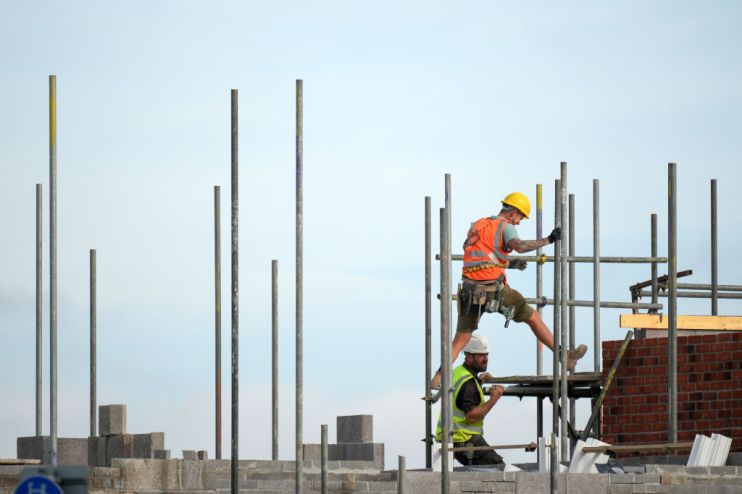FTSE 100 dragged down by Persimmon tumbling after property market warning

London’s FTSE 100 today was pulled down by house builder Persimmon tumbling after it warned rising rates will hit its bottom line.
The capital’s premier index edged 0.08 per cent higher to 7,306.14 points, while the domestically-focused mid-cap FTSE 250 index, which is more aligned with the health of the UK economy, climbed 0,75 per cent to 18,697.89 points.
Mortgage costs have ballooned this year, caused by a combination of the Bank of England hiking borrowing costs eight times in a row to three per cent to tame high inflation and banks passing on elevated UK debt rates fuelleld by former prime minister Liz Truss’s disastrous mini-budget roiling markets.
Higher mortgage servicing costs have ignited an affordability crunch, resulting in prospective homebuyers abandoning purchases and existing homeowners facing a tight squeeze on their finances when they refinance.
FTSE 100 edged lower today

As a result, Persimmon said buyers close to grabbing the keys to their new home have ditched purchases and prices for their property have dropped.
Dean Finch, chief executive of Persimmon, said: “Rising interest rates and broader economic uncertainty are clearly impacting mortgage lending and customer behaviour and this is reflected in our recent weekly sales rates and forward sales position.”
The company’s share price tumbled to second bottom on London’s FTSE 100, shedding over five per cent.
Other house builders also fell as investor sentiment toward the sector soured after Persimmon’s results. Taylor Wimpey dropped 0.54 per cent.
But, retailers B&M Bargains and Ocado surged more than four per cent, lifting the FTSE 100 into positive territory.
The pound initially weakened sharply against the US dollar today before strengthening more than 0.5 per cent. UK borrowing costs edged lower. Yields and prices move inversely.
Markets have also been mulling how high the Bank of England will send interest rates after it told investors last week not to price in too many rises despite launching the biggest hike in more than 30 years.
Chief economist Huw Pill said today more tightening is coming.